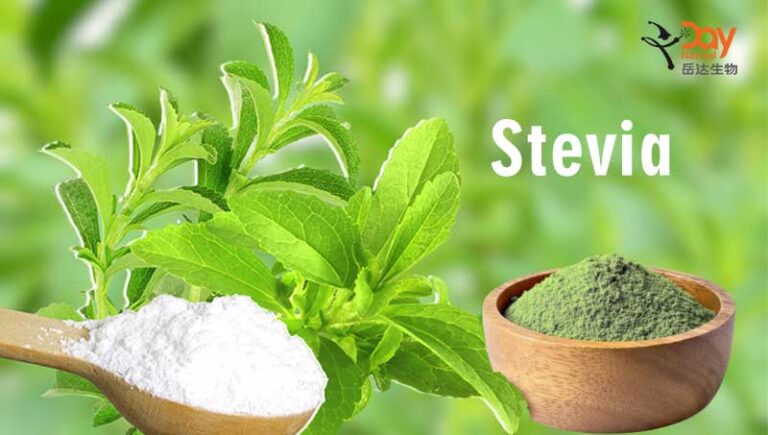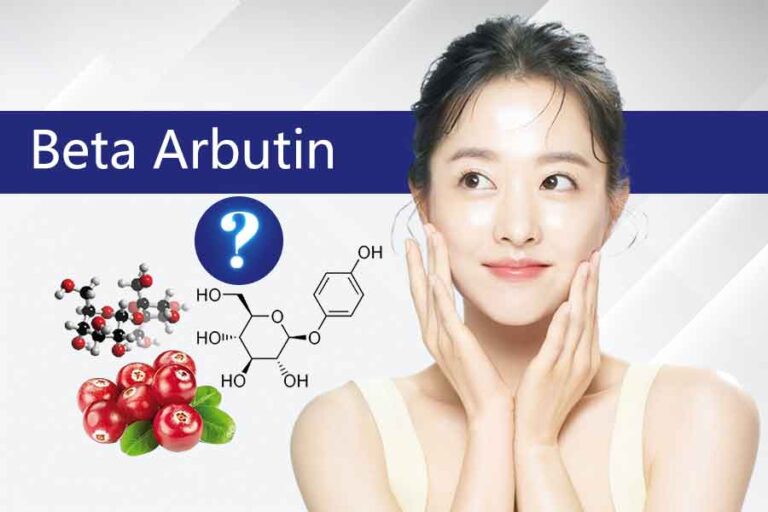Alpha Arbutin Side Effects
Alpha-arbutin is generally considered a safe and well-tolerated ingredient in skincare when used as directed. However, like any skincare component, it may not suit everyone, and some individuals could experience side effects, although they tend to be mild and infrequent.
Is alpha arbutin safe?

Yes, alpha-arbutin is generally considered safe for use in skincare products when used as directed. It is a naturally derived ingredient, often sourced from bearberry plant extract, and is recognized for its efficacy in skin brightening and reducing the appearance of dark spots.
Alpha-arbutin works by inhibiting the production of melanin, the pigment responsible for skin color, without the cytotoxicity or strong sensitizing effects that some other skin-lightening agents might have. However, like with any skincare product, individual reactions can vary, and it’s important to consider the following:
1. Skin Sensitivity
While alpha-arbutin is typically well-tolerated, individuals with highly sensitive skin may still experience irritation or allergic reactions. It’s recommended to perform a patch test before incorporating a new product into your routine.
2. Product Formulation
The safety also depends on the overall formulation of the product it’s in. Other ingredients in the product could potentially cause sensitivity or interact with alpha-arbutin.
3. Sun Exposure
Alpha-arbutin, like many skin-lightening agents, may increase photosensitivity. Users should protect their skin from the sun by using sunscreen with a high SPF and wearing protective clothing when outside.
4. Pregnancy & Breastfeeding
There may be limited data regarding the use of alpha-arbutin during pregnancy or while breastfeeding, so it’s advisable to consult with a healthcare professional before use in these circumstances.
Overall, alpha-arbutin is regarded as a safer alternative to hydroquinone, another commonly used skin-lightening agent, but as with any personal care product, it’s best to use it responsibly and with awareness of your own skin’s needs and limitations.
Does alpha arbutin cause purging?
Alpha-arbutin itself is not typically known to cause purging, which refers to the process where skincare products accelerate the turnover of skin cells, leading to the rapid emergence of pre-existing pimples or comedones as they are brought to the surface more quickly. Purging is more commonly associated with products that contain active ingredients that increase cell turnover rates, such as retinoids (like tretinoin or retinol) or products with high concentrations of exfoliating acids (e.g., glycolic acid, salicylic acid).
Alpha-arbutin primarily functions as a skin-brightening agent by inhibiting melanin production, rather than as an exfoliant or a product that increases cell turnover. Therefore, it is less likely to induce purging in the way that exfoliants or retinoids might.
However, any new skincare product has the potential to disrupt the skin’s balance temporarily, especially if your skin is particularly sensitive or if you’re introducing multiple new products at once. This disruption could manifest as minor breakouts or skin irritation, but this would not be classified as “purging” in the traditional sense of the term used for products that speed up cellular turnover.
If you experience persistent or severe skin reactions after starting a new skincare regimen containing alpha-arbutin, it’s advised to discontinue use and consult a dermatologist to determine the underlying cause and appropriate course of action. Always introduce new skincare products gradually and monitor your skin’s response carefully.
Alpha arbutin hyperpigmentation reddit
On platforms like Reddit, discussions around skincare, including the use of alpha-arbutin for hyperpigmentation, are quite common. Users share their experiences, ask for recommendations, and provide feedback on various products containing alpha-arbutin. Here’s a summary of what you might find in such discussions:
1. Positive Experiences
Many users report positive outcomes when using alpha-arbutin for hyperpigmentation, stating that consistent use over several weeks to months has helped lighten dark spots, acne scars, and uneven skin tone. They often mention that it’s a gentler alternative to harsher lightening agents.
2. Patience Required
Users emphasize the importance of patience when using alpha-arbutin, as results are not instantaneous. It may take weeks or even a couple of months to see noticeable changes, and consistent use is key.
3. Combination with Sun Protection
A frequent advice is to always pair alpha-arbutin use with a good sunscreen since unprotected sun exposure can counteract the effects of any lightening treatment and potentially worsen hyperpigmentation.
4. Layering and Product Recommendations
Users discuss different ways of incorporating alpha-arbutin into their routines, sometimes layering it with other actives like vitamin C or niacinamide for enhanced brightening effects. They also share reviews and recommendations for specific products that have worked well for them.
5. Caution for Sensitive Skin
While alpha-arbutin is generally well-tolerated, some users with sensitive skin report mild irritation or stinging. It’s suggested to do a patch test first and to introduce the product gradually, especially if combining it with other active ingredients.
6. Comparison with Other Ingredients
Discussions often compare alpha-arbutin to other popular hyperpigmentation fighters like hydroquinone, kojic acid, and azelaic acid. Many prefer alpha-arbutin for its perceived lower risk of side effects and long-term safety.
Remember, skincare experiences can be highly individual, and what works wonders for one person may not have the same effect on another. Consulting a dermatologist for personalized advice is always a good idea, especially for persistent or severe hyperpigmentation issues.
Alpha arbutin melasma
Alpha-arbutin is a popular ingredient in skincare products designed to address pigmentation issues, including melasma. Melasma is a common skin condition characterized by patches of brown to gray-brown discoloration, typically on the face, that can be caused by hormonal changes, sun exposure, and genetic factors.

How Alpha-Arbutin May Help with Melasma?
1. Inhibition of Melanin Production
Alpha-arbutin works by inhibiting the enzyme tyrosinase, which plays a crucial role in the production of melanin, the pigment responsible for skin color. By doing so, it can help prevent the overproduction of melanin in the affected areas and gradually lighten the appearance of dark spots and melasma patches.
2. Gentle Alternative
Compared to stronger depigmenting agents like hydroquinone, alpha-arbutin is often seen as a milder option with fewer risks of skin irritation or sensitivity, making it a more comfortable choice for long-term use in managing melasma.
3. Suitable for Various Skin Types
Because of its relative gentleness, alpha-arbutin is suitable for a wide range of skin types, including those with sensitive skin, who may want to avoid harsher treatments.
However, it’s essential to understand that:
– Consistency is Key
Results with alpha-arbutin, like with most skincare treatments for melasma, are gradual and require consistent, prolonged use. Improvement may not be immediate and can take several weeks or months to become noticeable.
– Sun Protection
Sun protection is paramount in treating and preventing melasma. Using a broad-spectrum sunscreen daily, reapplying as needed, and seeking shade when outdoors can prevent UV rays from exacerbating the condition.
– Professional Consultation
For severe cases of melasma, consulting a dermatologist is advisable. They may recommend a combination therapy, including alpha-arbutin along with other treatments such as prescription topical medications, chemical peels, or laser therapies.
In conclusion, alpha-arbutin can be a beneficial part of a melasma treatment plan due to its melanin-inhibiting properties, but it should be used as part of a comprehensive approach that includes sun protection and, if necessary, professional guidance.
Alpha arbutin pregnancy
While alpha-arbutin is generally considered a safer skin-lightening ingredient compared to some alternatives like hydroquinone, there is limited information on its safety during pregnancy. Due to this lack of extensive research, many dermatologists and healthcare professionals advise pregnant individuals to err on the side of caution when it comes to using any skin-lightening or brightening products, including those containing alpha-arbutin.
During pregnancy, hormonal changes can lead to increased skin pigmentation, known as melasma or the “mask of pregnancy.” While it might be tempting to treat these changes, it’s crucial to consider the potential impact of any topical product on the developing fetus. Some ingredients can be absorbed through the skin and potentially affect fetal development, although alpha-arbutin specifically has not been widely studied in this context.
As a general guideline:
– If you are pregnant or planning to become pregnant, it’s advisable to discuss any skincare routine changes, especially the introduction of new products like those with alpha-arbutin, with your obstetrician-gynecologist or a dermatologist familiar with pregnancy-safe skincare.
– Healthcare providers often recommend sticking to a basic and gentle skincare routine during pregnancy and avoiding ingredients that are not definitively deemed safe for use during this time.
Remember, there are alternative ways to manage skin concerns during pregnancy, such as using physical sunblocks with zinc oxide or titanium dioxide for sun protection, staying hydrated, and maintaining a healthy diet. It’s always better to prioritize the health and safety of both the mother and the baby.
Alpha arbutin hypothyroidism
There isn’t a direct connection between alpha-arbutin, a skin-lightening ingredient, and hypothyroidism, a medical condition characterized by an underactive thyroid gland. Hypothyroidism is managed primarily through medication and lifestyle adjustments under the guidance of an endocrinologist or a primary care physician.
Alpha-arbutin is a topical cosmetic ingredient that does not have systemic effects on thyroid function. It is applied to the skin and works locally to inhibit melanin production, thereby helping to reduce hyperpigmentation and even out skin tone. It is not expected to interact with thyroid hormones or affect the thyroid gland when used as directed in skincare products.
However, it’s always wise for individuals with any health condition, including hypothyroidism, to be mindful of their skincare choices and to consult with a healthcare professional before starting any new skincare regimen, especially if they have concerns about specific ingredients or potential interactions. This is more about ensuring overall health compatibility and less about a specific link between alpha-arbutin and hypothyroidism.
If you have specific health concerns related to your skincare routine and your thyroid condition, discussing them with your doctor can provide personalized advice tailored to your needs.




nice article